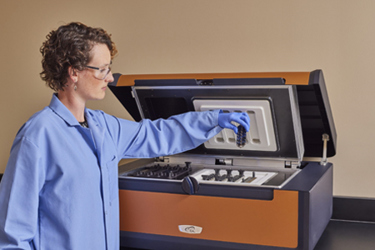Leveraging Innovative Analytics To Ensure The Thermal Stability Of mAb Drug Products

Analyzing and elucidating an antibody drug product's thermal stability is critical for meeting quality assurance and regulatory requirements in biopharmaceutical production. Utilizing cutting-edge RS-DSC technology capable of simultaneously analyzing up to 24 samples can help meet this need. This high-throughput capability not only accelerates the screening process for buffer formulations and protein modifications but also significantly reduces costs and time in drug development.
This study focuses on the critical relationship between antibody structure and function, emphasizing the need for effective thermal stability testing. Traditional Differential Scanning Calorimetry (DSC) methods are often slow and cumbersome, but the RS-DSC streamlines this process, allowing for rapid assessments of various formulations. The experimental setup, which utilizes microfluidic chips, facilitates the examination of Herceptin™ Trastuzumab across multiple buffer conditions, revealing insights into how specific formulations impact thermal stability. Automated data analysis through NanoAnalyze™ Software enhances the reliability of thermal transition detection, showcasing minimal discrepancies between manual and automated methods.
The findings underscore the significant influence of single amino acid mutations on protein stability, highlighting the need for meticulous evaluation in therapeutic development. Discover how the RS-DSC stands out as an essential instrument for advancing antibody drug product development, ensuring robust analysis and supporting regulatory pathways, and is poised to elevate your biopharmaceutical research.
Get unlimited access to:
Enter your credentials below to log in. Not yet a member of Pharmaceutical Online? Subscribe today.
